Like many who grew up in Ireland, Irish mythology stories were a big part of my childhood.
In school, we had the 4 cycles explained to us (the Mythology Cycle, Ulster Cycle, Fenian Cycle and Cycles of the Kings), with tales Fionn Mac Cumhaill and Cu Chulainn taking centre stage.
At bedtime, my dad would recount Irish myths and legends featuring Celtic creatures, like the Abhartach (the Irish vampire) and the Morrigan Goddess.
Below, you’ll find a collection of ancient legends of Ireland that have been passed down through the generations. Enjoy!
Ancient Irish mythology stories, tales and legends
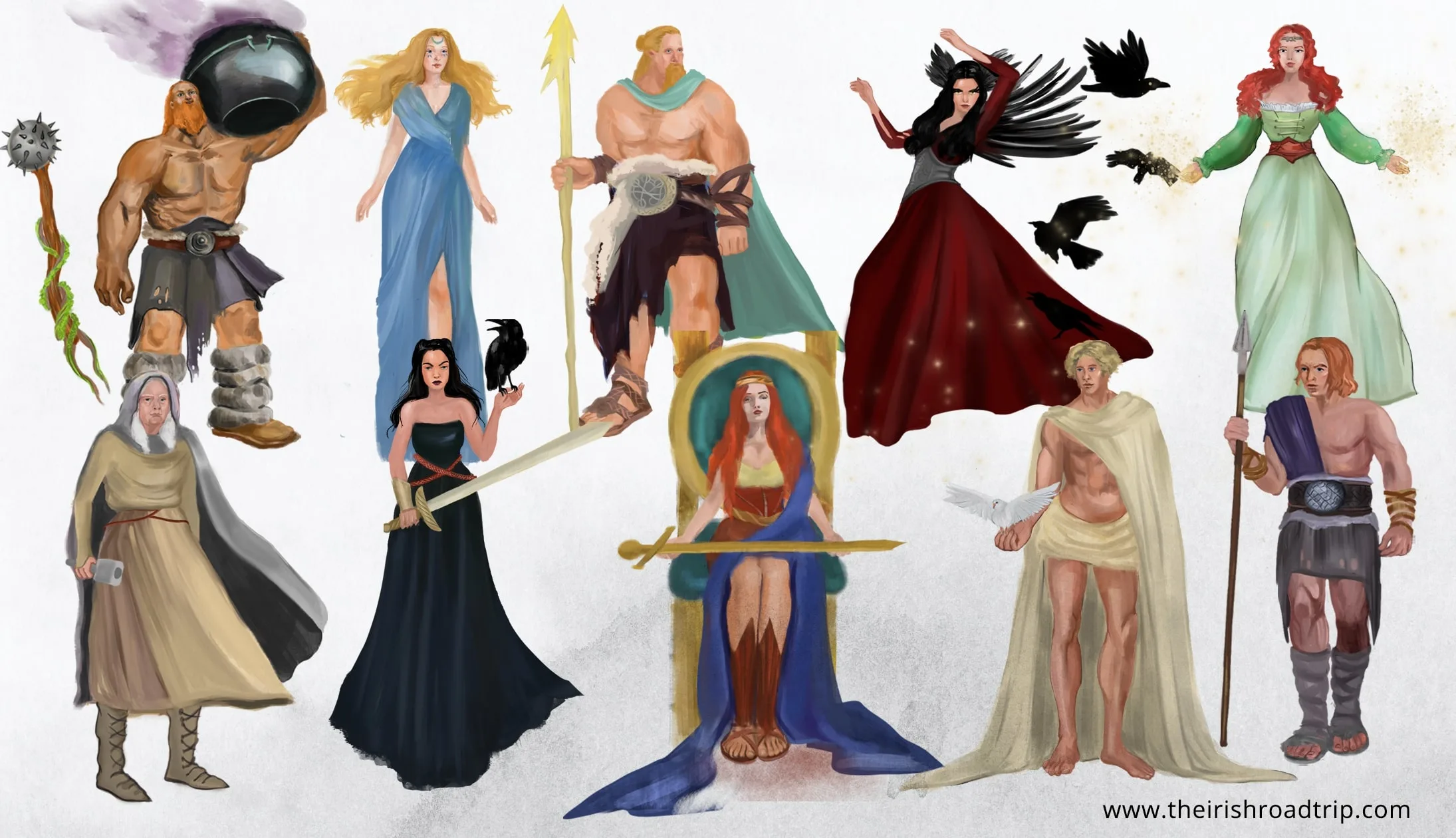
Many Irish tales and stories that date back thousands of years have been told time and time again right the way across Ireland, usually passed from parent or teacher to child.
In the section below, you’ll discover many of the most popular Irish myths. If you’re looking to read about fairies, vampires and other slightly mad stories, drop into our Irish folklore section.
1. Fionn Mac Cumhaill and the Giant’s Causeway

Photos via Shutterstock
The legend of the Giants Causeway is one of the most famous Irish folklore stories. It stars a giant named Fionn Mac Cumhaill and it tells the tale of his battle with a Scottish giant.
One day, Fionn was visited by a messenger from Scotland. The messenger had been sent by a Scottish giant who wanted to challenge the Irish giant to a battle.
Fionn agreed and he made his way to Scotland, using great chunks of land to create a path (this is now the Giants Causeway). When Fionn reached Scotland, he saw his opponent in the distance.
The giant was huge. Fionn retreated to Ireland and came up with a cunning plan to terrify the Scottish giant.
2. The Banshee
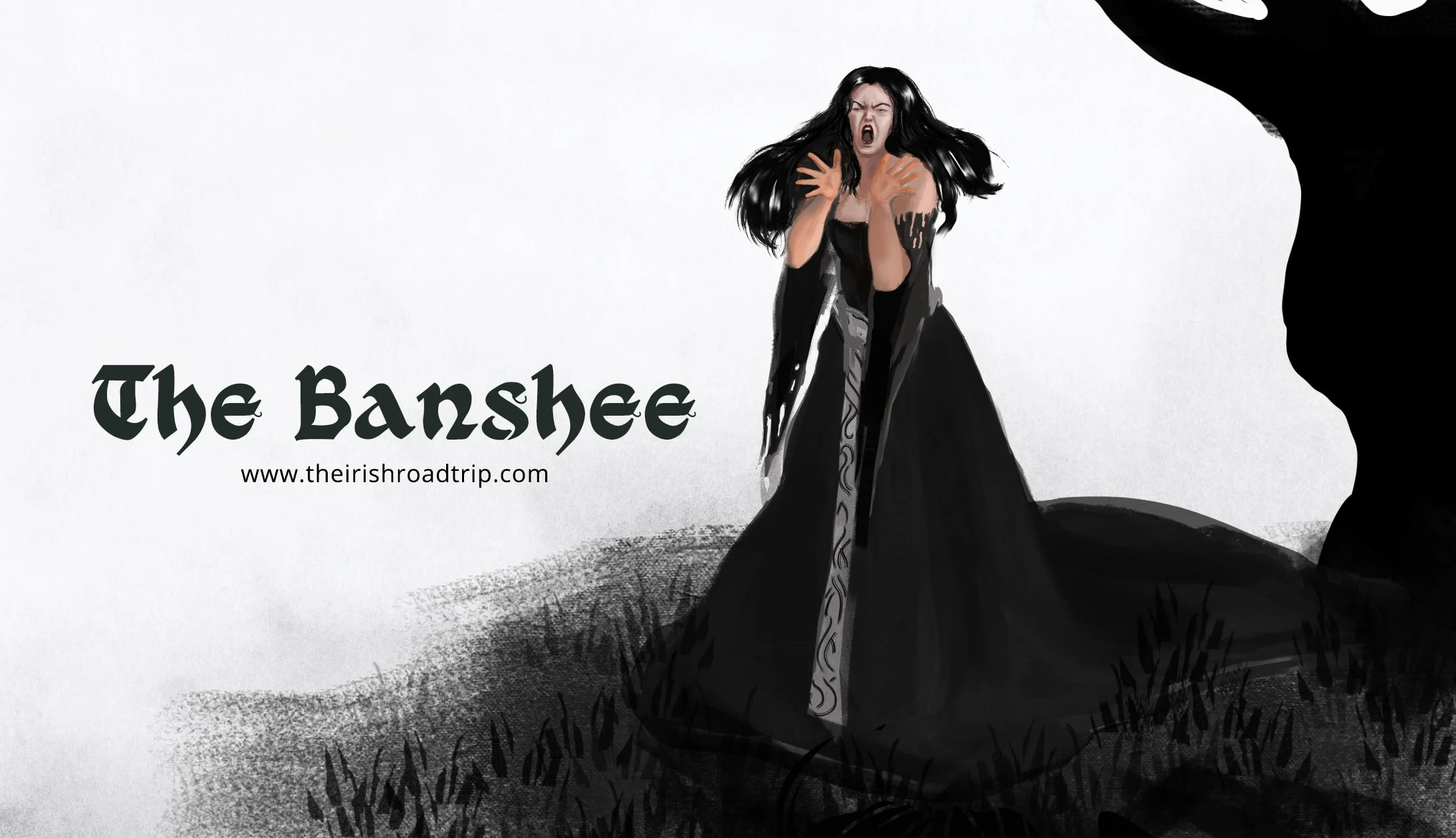
The story of the Banshee terrified me as a child. My dad used to say that there was one living down my Nan’s back garden, and I’d always be wary about seeing it.
Banshees are an Irish mythological creature that appear as an old hag in many Irish folk tales. The scream of a Banshee is believed to be an omen of impending doom.
According to Irish legends, if a person hears the scream ring out, one of their family is set to pass away shortly.
But are Banshees real? Well, there’s definitely a very clear link behind this myth and reality, and it comes in the form of the ‘Keening Woman’.
3. The Salmon of Knowledge

Photo left: Public Domain. Others: Via Shutterstock
The Salmon of Knowledge is one of the better known Celtic mythology stories, and it stars Fionn Mac Cumhaill. It all begins when a young Fionn is sent to be an apprentice with a celebrated poet named Finnegas.
Fionn learns of a magical fish that holds the knowledge of the world. According to the poet, the person who eats the fish will inherit all of its knowledge.
One day, while the pair were sat on the banks of the River Boyne, the poet caught a glimpse of the salmon and, without hesitating, he dived into the water and caught it.
He asked Fionn to cook it for him, but under no circumstances was he to eat it. You can probably see what’s coming next!
4. The Cattle Raid of Cooley

Photos via Shutterstock
The Cattle Raid of Cooley (AKA the Tain Bo Cuailnge) is one of the oldest Irish myths and legends, and it centres around Queen Medb – one of the Celtic Goddesses.
The story begins with Queen Medb has an argument with her husband over who was wealthier. Each had their servants pile up their riches in two piles side-by-side.
It became immediately evident that the one thing Medb’s husband had that she didn’t was a champion bull. Medb knew of only one bull in Ireland that would help her pip her husband.
The problem was, however, that the owner wouldn’t part with it, so one of the most famous battles from Celtic mythology started – Queen Medb vs Cu Chulainn.
5. The Children of Lir
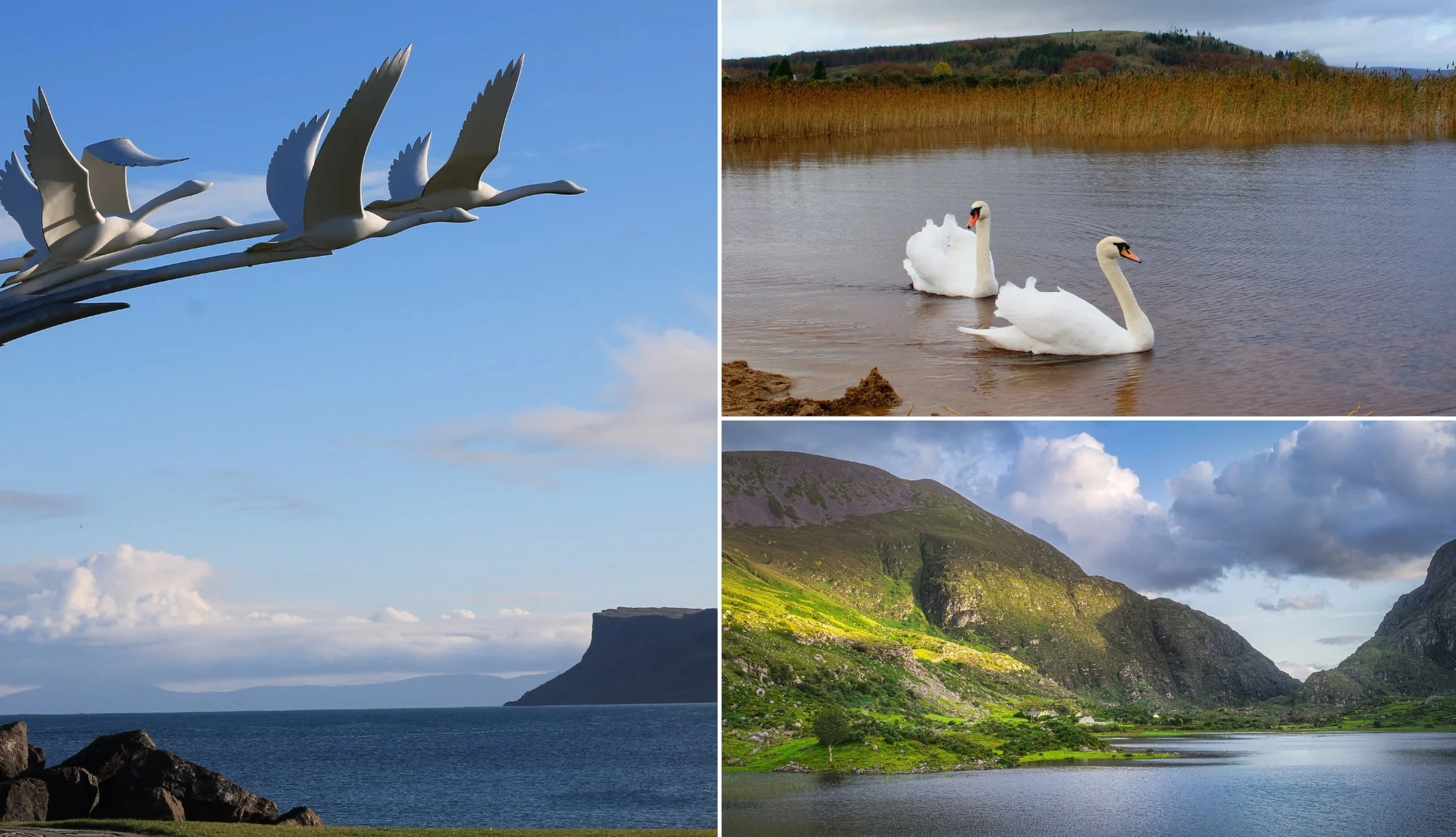
Photos via Shutterstock
Many years ago, there lived a King called Lir who was the ruler of the Irish sea. The King was married to a woman named Eva and the couple had four kids.
One day, when the kids were still little, their mother passed. Soon after, the King married Eva’s sister, Aoife.
Aoife was very fond of the kids at the start, but this changed. She quickly became jealous of the time that her husband spent with them.
Aoife soon reached breaking point and she came up with a terrible plan. She decided that she would cast a spell that would transform the kids into swans for 900 years.
6. The Puca
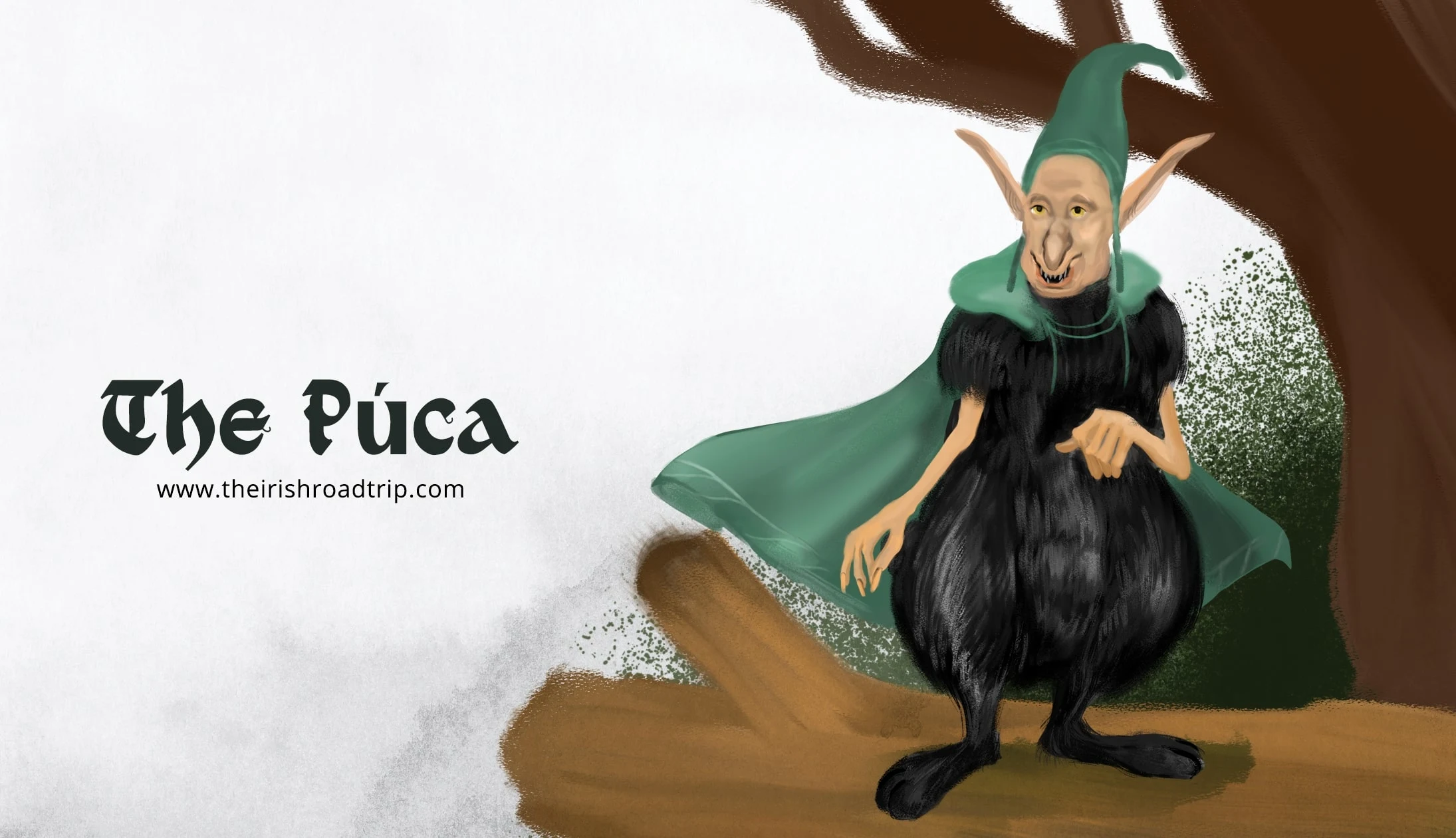
The Puca is a mischievous little creature from Celtic mythology that’s often misunderstood as being scary.
Yes, the Puca can cause trouble and strife, but its interactions with humans have never lead to any grave injury (that we know of…).
The Puca is one of many shape-shifters from Irish mythology stories and it has the ability to change its appearance with ease.
Known to frequent quiet corners of rural Ireland, the Puca can bring either good or bad fortune.
One of the stories about the Puca that tends to be told quite a bit is how it takes on the appearance of a horse and waits outside pubs for people that have had one drink too many.
7. The Pursuit of Diarmuid and Grainne

Photos via Shutterstock
Another of the famous Irish myths and legends is the pursuit of Diarmuid and Grainne. It all begins when Grainne, the daughter of Cormac MacAirt, is set to marry the warrior Fionn Mac Cumhaill.
It’s at their engagement party that Grainne is first introduced to Diarmuid. It was love at first sight. Now, Grainne had a problem – she needed to tell Diarmuid how she felt, but the room was full of people.
So, she decided to spike the food and drink and wait for people to konk out… The problem? The pair were now on the run from the Fianna – some of the mightiest warriors from Irish lore.
8. The Morrigan Goddess

The Morrigan was one of a number of powerful Celtic Gods and Goddesses that roamed the lands of ancient Ireland.
The Morrigan, like the Puca, was a gifted shape-shifter and was one of the Tuatha De Danann, who were the folk of the Goddess Danu.
The Goddess Morrigan had a number of battles with Cu Chulainn and although it wasn’t at her hand that the warrior met his demise, she was involved in the event that led to it.
9. Tír na nÓg

Photo left: Public Domain. Others: Via Shutterstock
The story of Oisin and Tír na nÓg (the land of eternal youth that existed somewhere in the western sea) is one of the most popular Irish folk tales.
The story begins when Oisin was off hunting with the Fianna. Out of nowhere, a beautiful princess on a white horse appeared, stating that she wanted to take Oisin with her to Tír na nÓg.
For Oisin, it was love at first sight and he immediately agreed. The pair travelled across land and sea to reach Tír na nÓg and they spent three happy years there.
Then, Oisin felt homesick and it was agreed that he could return to Ireland once his feet never touched Irish soil. Things didn’t go quite as planned.
10. The Abhartach
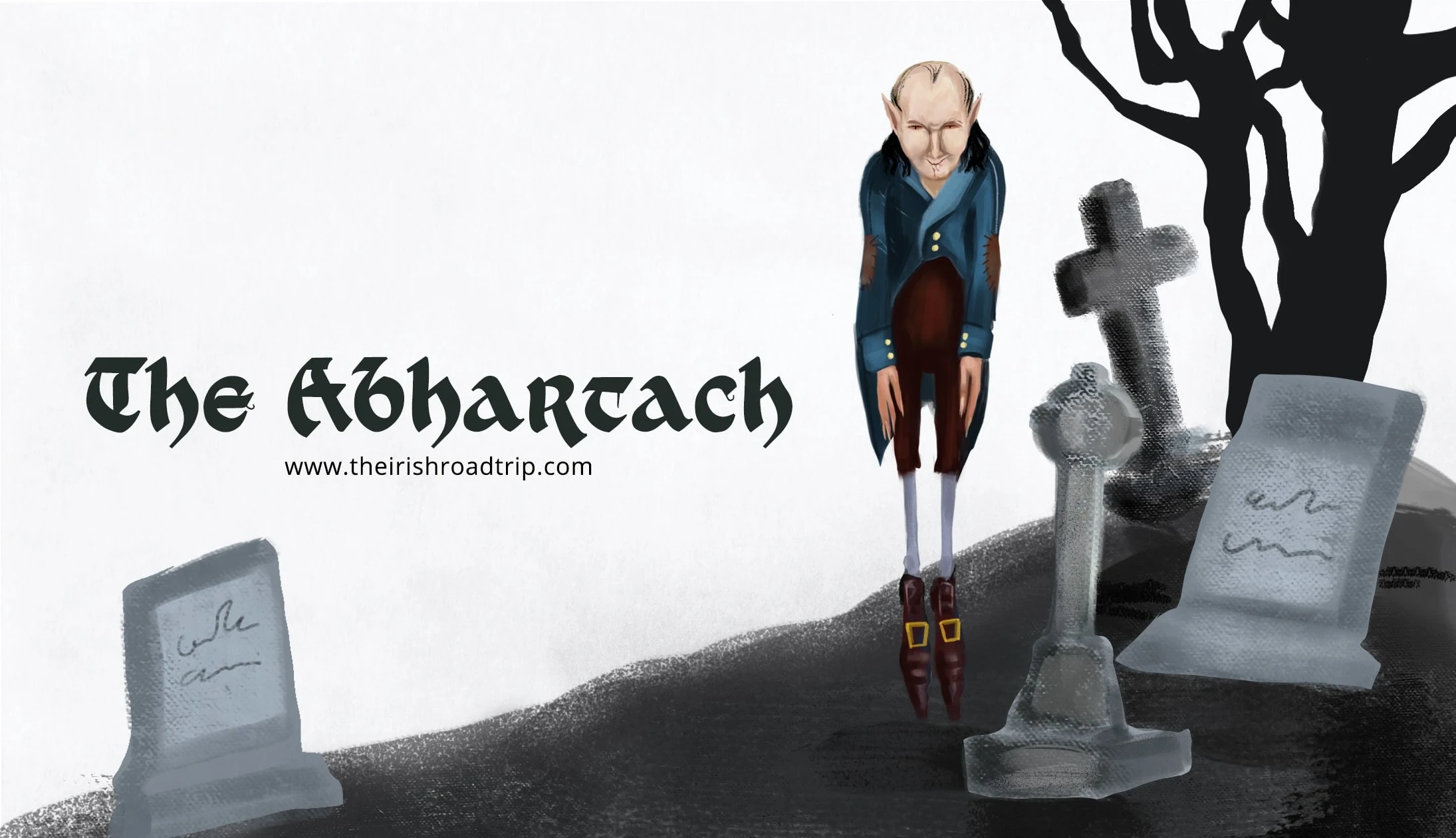
One of the scariest Celtic mythology stories tells the tale of the Abhartach – arguably the scariest of the many creatures to inhabit the world of ancient Ireland.
The story of the Abhartach all began with Patrick Weston Joyce, an Irish historian. Joyce published a book in 1869 titled ‘The Origin and History of Irish Names of Places.’
It was in this book that the world was first introduced to the Abhartach. The Irish vampire.
The book contains a story about a place in Derry called Slaughtaverty. It was here where, many years ago, a dwarf that possessed magical powers lived.
11. The tales of Cu Chulainn

Photo left: Public Domain. Others: Via Shutterstock
We were told many tales about Cu Chulainn growing up in Ireland, but it wasn’t until many years later that I first heard the tale of how his ending.
The warrior’s untimely end came about when the sons of the men that he battled over the years came together in an attempt to defeat him.
The story goes that Cu Chulainn’s fate was sealed when he broke an unwritten law. In ancient Ireland, the refusal of hospitality was a well-known ‘no-no’.
One day, on his travels, Cu Chulainn was approached by an old hag who gave him two options. The result was the end of the famous warrior.
12. The Tuatha dé Danann

Photo left: The Tuatha Dé Danann as depicted in John Duncan’s Riders of the Sidhe (1911). Others: Shutterstock
The Tuatha dé Danann were the fiercest rulers to ever roam Ireland. They were a supernatural race that arrived in Ireland when it was ruled by the Fir Bolg.
When they landed in Ireland, they immediately travelled to the west to see the Fir Bolg and to demand half of Ireland. The Fir Bolg refused and a battle commenced.
The Tuatha dé Danann came out on top and they went on to rule Ireland for many years. Read all about this mysterious race in our guide to the Tuatha dé Danann.
The 4 Cycles of Celtic Mythology

Celtic Mythology is a collection of myths from many years ago that tell the stories of a group of people.
It was within these narratives that gifted story-tellers explained how the world evolved to become what it is today. It’s believed that Irish mythology dates back thousands of years to when the Celts arrived in Ireland.
Irish legends falls into 4 different cycles. Each of the cycles are filled with different stories and characters.
The Mythological Cycle
The Mythological Cycle is the earliest cycle in Irish mythology. It revolves around a number of stories that feature ‘godlike peoples’. Many of the stories from this cycle feature the Tuatha Dé Danann.
The Mythological Cycle tells of five invasions of Ireland that were paramount in the forming of the country.
It also offers an insight into how the island of Ireland first came to be inhabited and it details the many struggles that followed those who came here.
The Ulster Cycle
Next up is the Ulster Cycle, which many say took place around the first century. It’s during this cycle that we’re introduced to many a warrior and mighty battle.
This cycle of Celtic mythology brought us the warriors of King Conchabar, the most prominent of which is the legendary Cu Chulainn.
The Fenian Cycle
The Fenian Cycle of Irish mythology primarily focuses on the great warrior Fionn Mac Cumhaill and his many exploits, like the legend of the Salmon of Knowledge.
This cycle tends to revolve around the institution of warriors, with the stories of the Fianna taking centre stage at the beginning.
The Cycles of the Kings/ Historical Cycle of Irish Myths
The final cycle of Irish mythology is the Historical cycle. This cycle blends history with mythology and its main characters are Labraid Loingsech (myth) and Brian Boru (real).
The Cycles of the Kings dates to after Saint Patrick came to Ireland and it’s said to have been influenced by Christian teachings.
Keith O’Hara has lived in Ireland for 35 years and has spent most of the last 10 creating what is now The Irish Road Trip guide. Over the years, the website has published thousands of meticulously researched Ireland travel guides, welcoming 30 million+ visitors along the way. In 2022, the Irish Road Trip team published the world’s largest collection of Irish Road Trip itineraries. Keith lives in Dublin with his dog Toby and finds writing in the 3rd person minus craic altogether.

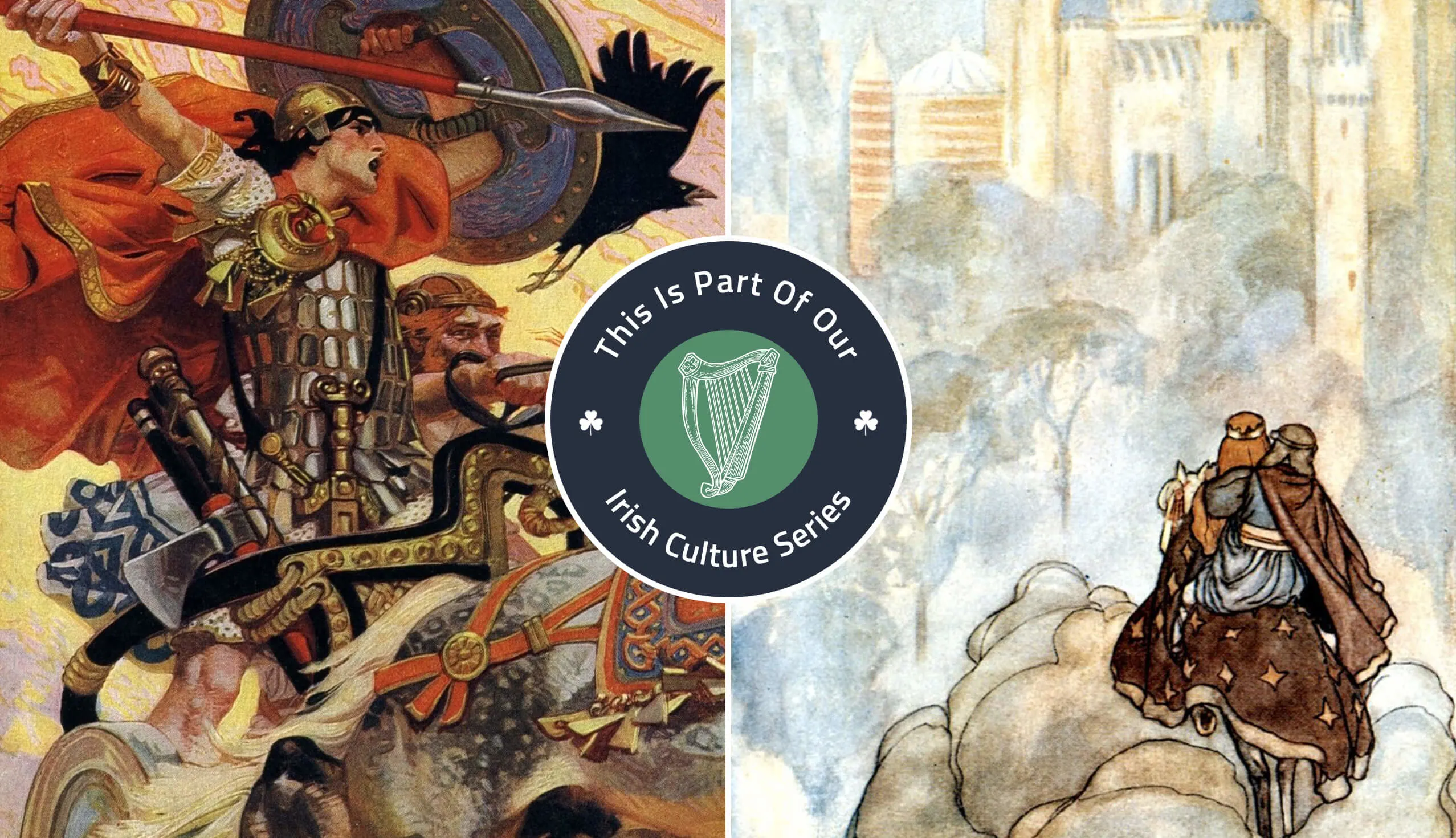
Valpal2023
Tuesday 26th of April 2022
Thanks for this! I love it! This is going to really help me in school. This is amazing!
Mihaela
Thursday 10th of February 2022
A real delight to go back in a time out of time in mythological Ireland. A country you will always love, once you discover it. Not to mention its wondreful people. Thanks for these blessed moments!
Madeline McCully
Thursday 3rd of February 2022
Hi Keith I was delighted to come across your site. I am a storyteller-writer and Mythological tales are my bread and butter. I love the fact that children are interested and ask questions. I will pass on your website address when I can. I've written Derry folk tales, Haunted Derry, haunted Donegal and Haunted Antrim. Ádh Mór a Chara Madeline
Keith O'Hara
Friday 4th of February 2022
Thanks for the kind words Madeline.